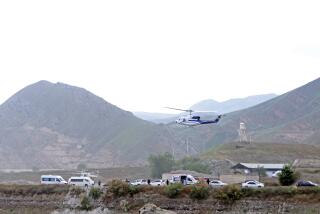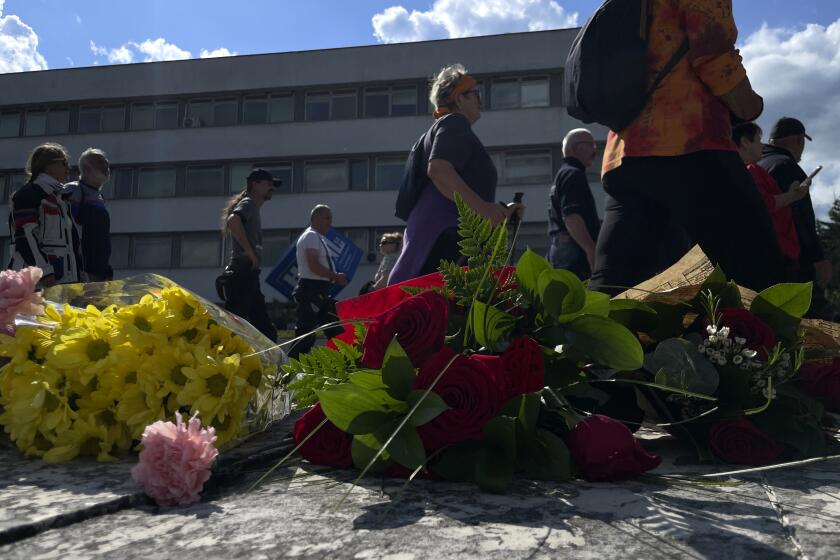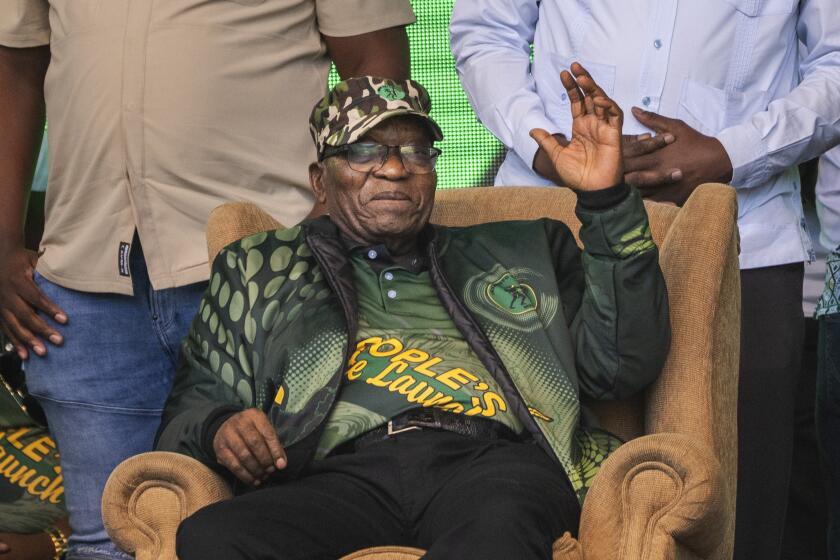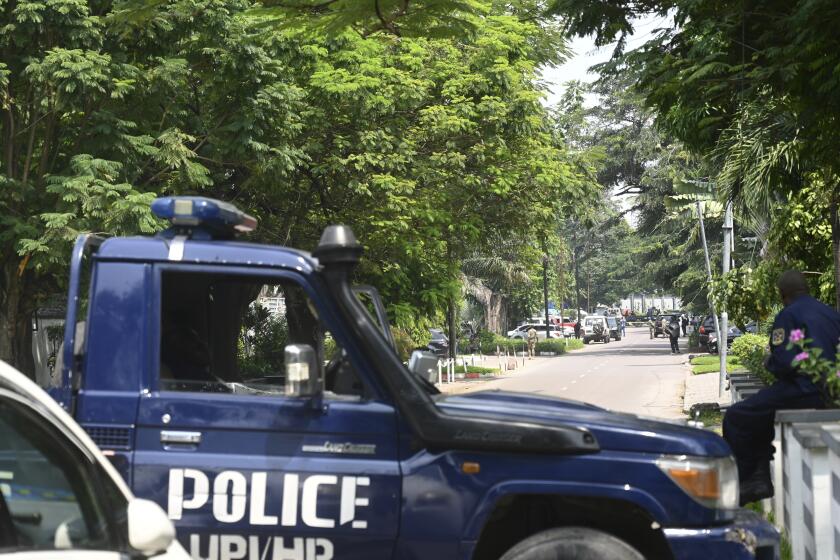Congress Stalled on Contra Aid Package
House Democratic and Republican leaders met for five hours Monday but failed to agree on a new package of non-military assistance to sustain the Nicaraguan Contras during the current preliminary truce period and future peace efforts in Central America.
According to sources who attended the meeting, the talks were snagged on several issues, including how the assistance would be delivered and what Congress would do if the current truce does not evolve into a permanent cease-fire.
Will Meet Today
Nevertheless, California Rep. Tony Coelho (D-Merced), the assistant majority leader, said that the two sides plan to meet again today in hopes of reaching an agreement on a package of about $40 million for the Contras before Congress recesses later this week for an Easter break.
“It was a very positive meeting,” Coelho said. “We’re hopeful.”
The lengthy, closed-door session was attended by leaders of both parties, including House Speaker Jim Wright (D-Tex.) and Minority Leader Robert H. Michel (R-Ill.), as well as three representatives of the Nicaraguan Resistance, Adolfo Calero, Alfredo Cesar and Enrique Bermudez. In addition, Joao Baena Soares, secretary general of the Organization of American States, was invited into the meeting to explain some aspects of the cease-fire agreement.
Sources said that both Republicans and Democrats were stunned at the outset of the meeting when they learned from Contra leaders that the current truce agreement, signed last week by the representatives of the Contras and Nicaragua’s Sandinista government, precludes delivery of future U.S. aid to the rebels through international relief organizations such as the Red Cross.
A Divisive Issue
The method of delivery of U.S. aid has long been a divisive political issue in the United States, particularly since the Democrats learned last year that the Reagan Administration secretly delivered military equipment to the Contras during 1985 and 1986 when direct U.S. aid was banned by Congress.
Republicans and Democrats had been hoping to avoid a renewed battle on this issue by agreeing to put the money in the hands of the Red Cross.
Calero reportedly told the group that the cease-fire agreement stipulates that continued U.S. assistance would be delivered by an unspecified private transport company capable of making airdrops to the Contras in remote areas of Nicaragua.
A commission headed by Baena Soares will certify that the company chosen to make these air drops to the Contras is a “neutral party” in the Nicaraguan guerrilla war. The proposed $40-million aid package would include $10 million for the commission, according to Coelho.
Not only were congressional leaders divided over the method of delivery, sources said, but there was continued disagreement among them over how Congress would deal with a request for renewed military assistance to the Contras if the current peace talks in Nicaragua break down.
Republicans were demanding a guaranteed quick vote on military aid under such circumstances; Democrats were reluctant to make any such promise.
More to Read
Start your day right
Sign up for Essential California for news, features and recommendations from the L.A. Times and beyond in your inbox six days a week.
You may occasionally receive promotional content from the Los Angeles Times.






